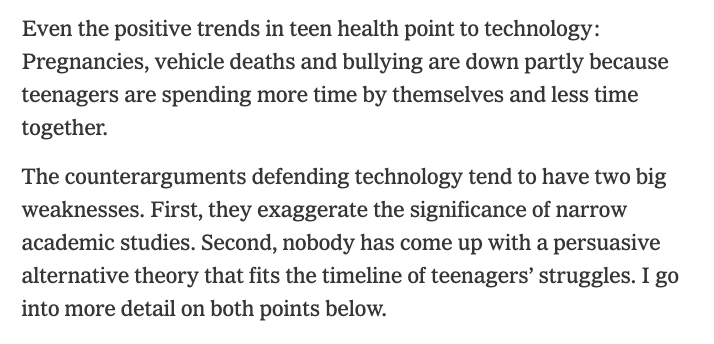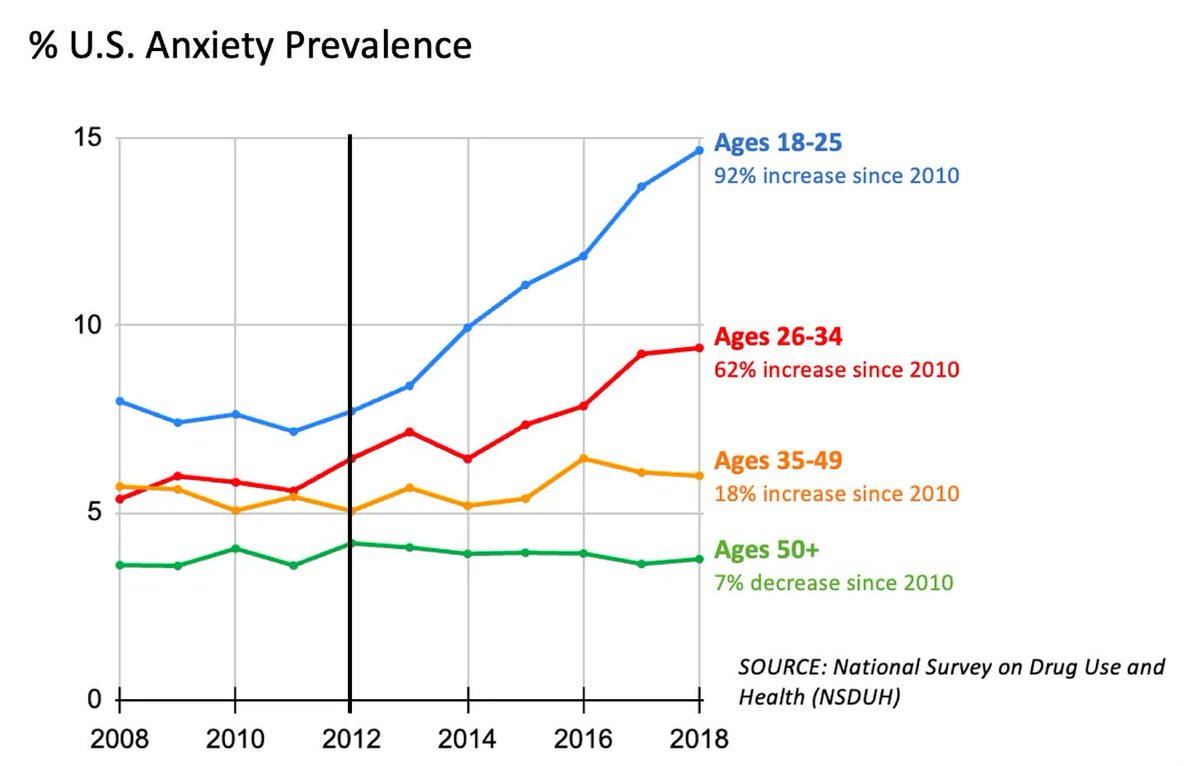
1. In the debate over whether social media caused the teen mental illness epidemic, the loudest voice is the complete absence of Gen Zers saying “no.”
I have spoken at many high schools. Not once did a student say that social media was on the whole good for them.
I have spoken at many high schools. Not once did a student say that social media was on the whole good for them.
2. Sure, some teens will point to some benefit of social media. Not all are harmed, and some say that on the whole they enjoy it. But all see the massive waste of time and the devastation it causes to many of their friends, and to their generation.
3. More typical is this Gen Z TikToker, @Benspaloss, with 55k followers, who pleads: “Ban TikTok Now”:
tiktok.com/@benspaloss/vi…
tiktok.com/@benspaloss/vi…
4. It is time that we listen to Gen Z, and to the experimental studies, which now show clear evidence that social media is a cause, not just a correlate of mental illness:
jonathanhaidt.substack.com/p/social-media…
jonathanhaidt.substack.com/p/social-media…
5. Congress will have to raise the age of "internet adulthood" someday; 13 is way too low.
In the meantime, every state should follow Utah: require parental consent for minors to open accounts. We parents of teens are all struggling. Help us out.
nbcnews.com/tech/social-me…
In the meantime, every state should follow Utah: require parental consent for minors to open accounts. We parents of teens are all struggling. Help us out.
nbcnews.com/tech/social-me…
• • •
Missing some Tweet in this thread? You can try to
force a refresh











